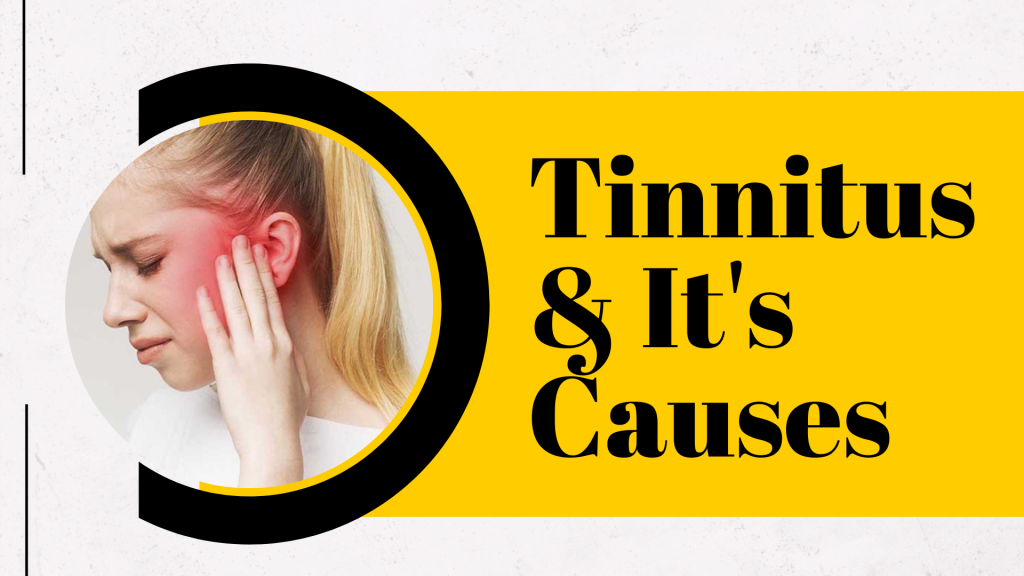
Tinnitus & It’s Causes
Tinnitus & It’s Causes
Tinnitus is defined as “ringing in your ears” that others don’t hear called subjective tinnitus whereas others hear your tinnitus is called objective tinnitus. Tinnitus can sound like a wide range of things —hissing, roaring, pulsing, whooshing, chirping, whistling, or clicking. Tinnitus can happen constantly in one ear or the two ears.
Is tinnitus normal?
Indeed. 33% of all grown-ups experience tinnitus at some point in their lives — times of gentle ringing or on the other hand different sounds in the ear. Certain individuals have additional irritating sorts of tinnitus. For instance, around 10%-15% of grown-ups have prolonged or noisy tinnitus requiring clinical assessment. The specific reason for tinnitus is frequently not known. One thing is certain: Tinnitus is real.
What causes tinnitus?
Conditions that could cause tinnitus include:
• Hearing loss
• Loud noise exposure
• Medications or drugs that are poisonous to hearing (ototoxic)
• Head injury
• Ménière’s disease
• Hypertension
• An excessive amount of wax in the ear
• Specific types of tumors
Why tinnitus worse at night?
During the day, you are more occupied by other environmental sounds around you. This makes your tinnitus less perceptible. At the point when your environmental factors are quiet, your tinnitus can appear to be louder and irritable! Fatigue and stress make your tinnitus more regrettable.
How is the reason for tinnitus analyzed?
Tinnitus is a side effect of something different. As tinnitus is much of the time brought about by hearing loss, you should do a full hearing assessment by an audiologist. You need to additionally see your doctor to decide if something different might be causing your tinnitus.You should see an audiologist to test your hearing for identification of hearing loss. Since tinnitus can be related with a few hearing-related conditions, the audiologic assessment can assist with giving data about the cause and treatment choices for you.
Could tinnitus at any point be estimated?
Tinnitus can’t be estimated straightforwardly. The audiologist depends on data that you give in portraying your tinnitus. Your audiologist will perform tests that assist with assessing the frequency and loudness of your tinnitus.
How tinnitus treated
Tinnitus can treated by any of the following choices:
• Hearing Aids
• Biofeedback
• Electrical Stimulation
• Relaxation Therapy
• Counselling
• Habituation Therapy
• Tinnitus Sound Generators
• Sound Machines
Audiologists and otolaryngologists (ear, nose, and throat specialists, or ENTs) regularly work together in recognizing the reason for tinnitus and giving
treatment and management!
Will a hearing device help tinnitus?
In the event that you have a hearing loss, there is a chance that a portable hearing device will both ease your tinnitus and assist you with hearing. Audiologist can help with the determination, fitting, and acquisition of the most proper amplifiers for you. Your audiologist will likewise assist you with figuring out how to get the best use out of your listening devices.Tinnitus sound generators seem to be amplifiers and produce sounds that make tinnitus not seem as loud The sound distracts and make easier to adapt the tinnitus. The way you portray your tinnitus (pitch & loudness) figure out what sort of sound bring relief. In the event that you have a hearing loss as well as tinnitus, the sound generator and the listening device might work together as one instrument.

0 comment